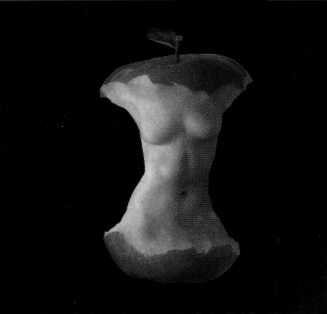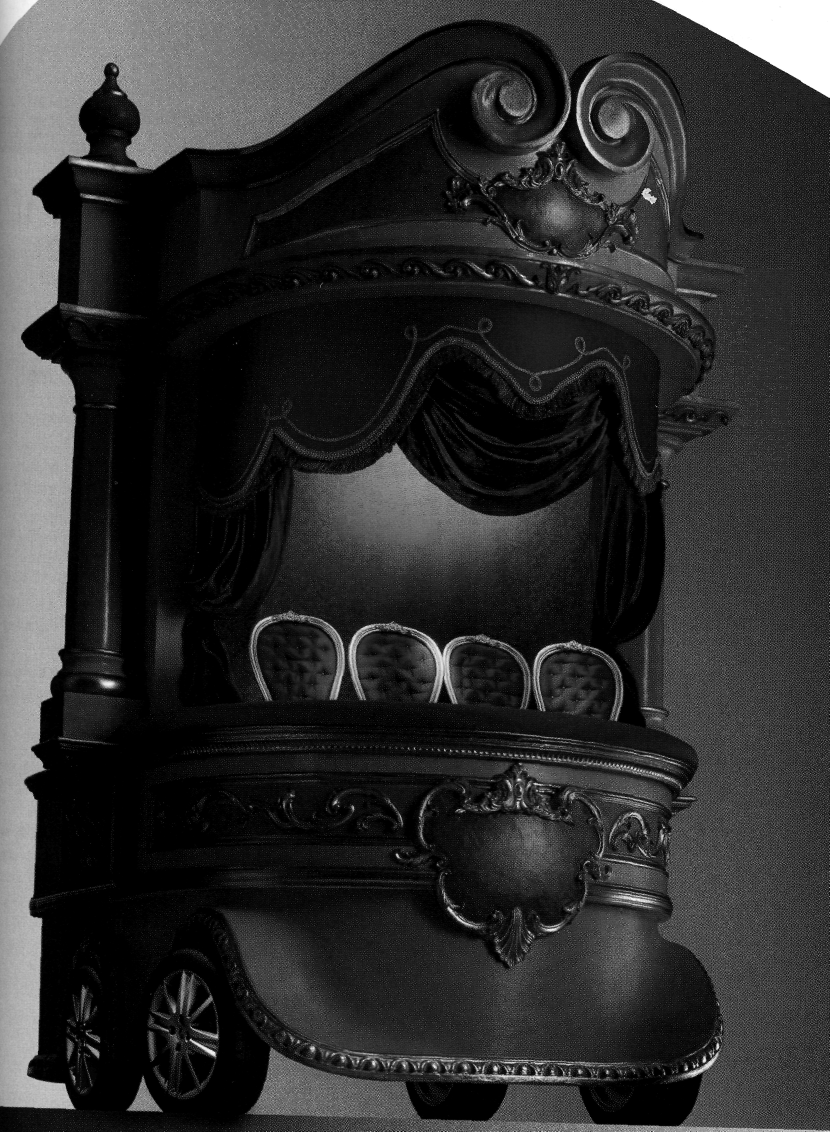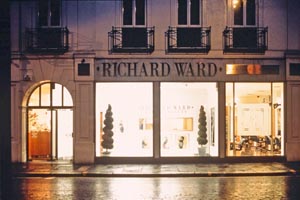Пособие по обучению практике устной и письменной речи (начальный этап) на английском языке Под ред. О. В. Серкиной
 Скачать 17.03 Mb. Скачать 17.03 Mb.
|
2) Buying Food at the MarketVera: Good morning, Nina! Nina: Oh, that’s you, Vera! How nice that you have come. Vera: I haven’t seen you of late so I thought I’d… Nina: I say, Vera, have you time to go with me to the market? Ma feels unwell and she wants me to do the shopping. Vera: Why, yes! I am quite free. Nina: Just wait a minute while I get the bag ready. Where can it be, I wonder? I’ll go and ask… Vera: It cannot be in the larder, Nina, can it? Nina: Of course, it must be there. (Comes back with the bag.) Well, let’s go. Vera: Have you taken the money? Nina: Oh, how silly I am! Going to the market without a penny in my pocket. Nice, indeed! (Goes out and shortly comes back.) Well, it seems to be all. Come on. (At the market.) Vera: What do you want to buy? Nina: Some meat, eggs, vegetables and some berries. Vera: Are berries in season now? Nina: They are. Now, what shall we buy first? Vegetables? Vera: I think so. Where do they deal in vegetables? Nina: I don’t know. This is the first time I’m out marketing. It seems over there. Vera: Say, Nina, let’s go over to that woman. See what a wealth of vegetables she has. Nina: (to the saleswoman). How do you sell the cabbage, by the head or by weight? Saleswoman: By the head. Here is a nice head, young lady. Nina: Show me that nicely trimmed one over there, please. Saleswoman: Here you are. See how firm it is. Nina: Yes, I shall take it. Saleswoman: What else would you like? Nina: A bunch of carrots, please. No, those are overgrown. Give me the bunch next to it. Yes, that one. Saleswoman: Anything else, young lady? Nina: Now pick out ten cucumbers, please. Saleswoman: Here you are, please. Right from the garden. Some onions? Nina: Yes. How do you sell them? Saleswoman: These – by the ten, and these of the smaller size – by weight. Nina: I’ll take ten of these. Saleswoman: Here’s a couple of small ones into the bargain. You are one of my best customers. Vegetables sell badly today. Nina: What does it come up to? Saleswoman: Now, let me see. A cabbage, that’s a pound ten, a bunch of carrots – £ 1.80, please. Nina: Here you are. Thank you. 3) A Few ErrandsFelix: I'm just going down to the shops to buy some cigarettes, Gertie. Do you want anything while I’m there? Gertie: Yes, what a good idea! There are a lot of things I need, as a matter of fact. Let me see ... We haven’t got many eggs left, so bring a dozen large ones. And there isn’t much cooking-fat in the jar, so bring a pound of lard. And ... Felix: Hold on! If you want me to get a lot of things, write them down on a piece of paper, or I’ll forget something. Gertie: All right. But wait a minute, while I look in the other cupboard to see what we need. Felix: Hurry up, then! I want to call in for a chat with Gerry on the way back. Gertie: We’ve got plenty of cocoa, but there isn’t much tea or coffee left. Bring a large tin of instant coffee and a quarter pound of tea. Oh! And I want some ham. Felix: How much? Gertie: Half a pound will do. We’re short of vegetables, too; bring some beans, and a tin of carrots ... Felix: I only wanted to go out for a stroll and a chat. I’ll need a lorry to bring all that home. Gertie: Here’s the list. Oh, and you can pick up my coat at the dry-cleaner’s while you are passing? And do me a favour while you are at Gerry’s: ask Pam if she’s free on Thursday morning. We’re having a meeting at ten o’clock about the tennis-club dance in August. Bye, dear. 2.27. Work with a partner and act out the following situations. 1. You buy a sweater and leave it in a store by mistake. When you discover it is missing, you return to the store and ask the clerk if he has seen it. 2. You have bought a pullover. You get home, try it on and it doesn’t fit. You haven’t washed it and you tried it on in the shop. Maybe, they gave you the wrong pullover by mistake. You go back to the shop to sort things out. 3. You are at a men’s ready-made clothes department. You want a suit for everyday wear, some shirts and a tie to match the suit. The shop-assistant is ready to help you. (You are going to buy those things for you or for your husband/son). 4. You are at a shoe department. You want a pair of good summer walking shoes. The shop-assistant is very helpful. 5. You are at a computer shop. You need a new computer. You want it to be both cheap and reliable. 6. Tomorrow is your mother’s birthday. You need to buy a lot of food. The sales assistant is eager to help you. 7. You are at a women’s outfit department. You need a summer/ evening dress. You ask the shop-assistant about the fabrics, the price and other details. 1 2.28. Work in a small group and discuss these questions. Then discuss them in class. ) Do you often go shopping? Is there a greengrocery near your house? What is it like? When did you last go shopping there? What did you buy there? 2) Where do you usually buy your food? What is the shop like? Do you like to do your shopping there? Why? When did you last go there? What did you buy? How long did it take you to do your shopping there? 3) Which is the biggest department store in your town? Where is it? What is it like? How often do you do your shopping there? When did you last buy anything there? What was it? 4) What shop do you usually go to if you want to buy a present? What present did you buy for any of your relatives (mother, father, sister, etc.) or friends last? What was the occasion? Where did you buy the present? Did it take you long to choose it? Are you sure the person you’d bought the present for really liked it? 2.29. Comment on the following proverbs and sayings about money, buying and bargains. Which one do you like best? Why? Which one do you disagree with? Citations about the about money, buyin and bargains:
2.30. Read the text and answer the questions below, then discuss it in class. Fresh Fish Don Pedro wishes to attract the attention of the entire neighbourhood upon opening his new shop and for this reason spends a great deal of money on a sign. In bright colours, the sign bears the following words: FRESH FISH IS SOLD HERE. The very day of the shop’s opening a customer tells Don Pedro: "Why do you have the word HERE on the sign? Everyone knows that it is here and not on the other block where fish is sold. The word HERE is unnecessary." The observation seems reasonable to Don Pedro. So he calls the painter and has the word HERE removed from the sign. A few days later, a lady convinced Don Pedro that the words IS SOLD are not needed, since nobody is going to assume that the fish is given away free in the shop. Without the words IS SOLD the sign will be much more beautiful, says the lady. “The only words that are necessary are FRESH FISH.” Thoroughly convinced, Don Pedro calls his painter and has the words IS SOLD removed. But the same week an employee from the telephone company comes around and after praising the beauty of the sign, says: “It seems to me that the word FRESH is one too many. No one is going to doubt that your fish is not fresh. How can you sell it rotten? You must remove the word FRESH. FISH is enough.” Convinced again, Don Pedro calls his painter and has word FRESH removed. Good Heavens, how many expenses the famous sign brings about! But now it is very nice with only one word FISH. In spite of everything, Don Pedro feels satisfied. But his joy doesn’t last long. In a few days a friend of his, who lives in the country, passes through there, and shouts to him from the sidewalk across the street: "What a fool you are, Pedro! From far away everyone can tell, from the smell, that it is here where fish is sold. Why do you need that sign? The word FISH is not needed. Everyone knows that it is fish and not perfume which you sell here." And poor Don Pedro, desperate, has the last word removed. Questions: 1. Why did Don Pedro put a sign on his new shop? How do we call it now? 2. Why did the sign prove worthless? Do you agree with it? 3. What could Don Pedro have written on his sign to make it worthwhile? 2.31. Read the passage below on the advertisement. What do you think about it? Does it really influence people’s decision-making when shopping? What ways of advertising are used in Russia? Can people trust ads? Discuss these questions in class. Advertisements are everywhere, from columns of small classified advertisements for houses, jobs, cars, etc. in newspapers to big posters on walls and enormous advertisements on hoardings by the side of the road. The job of the advertising agencies is to publicise the products of the firms which and employ them. They design eye-catching advertisements and make television commercials to persuade us to buy, buy, and buy. But things are not always as good as they are described in ads. According to a report released in 2002 by the US Federal Nrade Commission half of all weight-loss ads, whether in print, on television, or on the Internet, make false claims 2.32. a)Look at the ads below and try to guess what they may be publicizing. Discuss your ideas in a small group.     b) Look at the things that were really advertised by the pictures above and match the slogans with the pictures. 1) “Shell is making waves for cleaner engines” 2) “Wash out your hair-monsters. Sunsilk anti-flat” 3) “Renault. Creatures of comfort” 4) “The Golden’s Gym 3-Apple a Day Plan” c) Pick up one thing and make up an ad for it to be broadcast on TV or radio. Present your ad to class. 2.33. Read the passage below about an interesting way of selling and buying goods in the US and Britain. Have a garage sale organized in your group. Bring pictures of the things (or the things !) you would like to sell and talk your group mates into buying them. Garage/Yard Sales You may find inexpensive used household items, clothing, sports equipment or furniture at garage and yard sales. These are sales of personal objects by individuals at their home. Purchase and use of these items is considered culturally acceptable. At a garage sale, you may negotiate the price of items you are interested in purchasing. Some people go gaga over old or even antique things you might find there. Often people selling their belongings don’t even know the real price of the things. WRITING 2.34. Read the text and write a similar 250-word essay on some piece of clothing that was all the rage some years ago and is fashionable now. Back in Fashion Millie stopped outside a shoe-shop and looked in the window. For some time she gazed at a pair of fur-lined high boots on display. “They’re exactly what I want”, she thought. The boots were unpriced so Millie decided to inquire how much they cost. “I’d like to buy a pair of boots like the ones you have in the window", she asked the shop-assistant. “Could you tell me how much they are, please?" As the price was reasonable, Millie decided to try a pair on. The shop-assistant asked her to sit down and brought a pair. While she was helping Millie to put them on, she kept looking at Mill’s stockings made of fine white lace. “Excuse my asking”, the shop-assistant said at last. “But where did you get those stockings? We’ve been trying to obtain stockings like these for some time. They are the very latest fashion and they are in great demand”. “They are pretty, aren't they?” Millie said. “My grandmother gave them to me”. 2.35. Write a 350-word essay on one of the topics below.
2.36. Choose any dialogue from Ex.2.26 and give a brief (about 100 words) account of the conversation. 2.37. Write a short passage about how advertising influences you and what you buy. 2.38. Render the text in English. Шопинг, сэр! Наряду с признанными «храмами» мировой моды – Миланом и Парижем – Лондон остается столицей шика и родиной особого английского стиля. Одни из лучших дизайнеров – англичане. Британцы Джон Гальяно (John Galliano), Александр Маккуин (Alexander McQueen), Джулиен Макдональд (Julian MacDonald), Вивьен Вествуд (Vivienne Westwood) занимают свои почетные места на модном олимпе. Обитатели этого города действительно разбираются в моде и знают толк в одежде. Лондон… Удивительный город, овеянный легендами, сочетающий в себе космополитизм единой Европы и сдержанность столицы независимого острова. Город, растиражированный миллионами открыток с историческими видами Биг-Бена, Парламента, Вестминстерского Аббатства и Тауэрского моста, до чопорности чтящий многовековые традиции и одновременно находящийся в авангарде модных тенденций. Именно поэтому сюда стекаются модники и модницы со всего мира. Несмотря на то, что англичане довольно терпимы к туристам, которые могут иметь совершенно другие представления о хорошем вкусе, демонстрация возможностей своего кошелька у лондонских гуру стиля считается безвкусием, а отсутствие воображения и творческого подхода к одежде - той самой простотой, которая хуже воровства. То есть если вы с головы до ног нарядитесь во что-нибудь «богатое», подчеркнуто дорогое и роскошное, то это будет моветоном. По-настоящему ценятся лондонскими модниками вещи уникальные - лучше, если они вообще будут существовать в одном экземпляре. С  большой симпатией лондонцы относятся к национальной одежде всех мыслимых и немыслимых расцветок и фактур и столь же экзотическим украшениям. Излюбленное занятие лондонских дам — неспешное исследование длинных рядов одежды с незнакомыми этикетками. Так запросто можно найти, например, платье, созданное дизайнером, чье имя через два года не будет сходить со страниц модных журналов. Вообще угадать тренд – это высший шик. Субботний день охотники за модой тратят на прогулку по рынку Портобелло (Portobello), где, как утверждают очевидцы, можно найти абсолютно все: от безделушек до настоящих драгоценностей, от одежды начинающих дизайнеров до африканской и американской экзотики, от ширпотреба до эксклюзивных вещей модельеров прошлого века. большой симпатией лондонцы относятся к национальной одежде всех мыслимых и немыслимых расцветок и фактур и столь же экзотическим украшениям. Излюбленное занятие лондонских дам — неспешное исследование длинных рядов одежды с незнакомыми этикетками. Так запросто можно найти, например, платье, созданное дизайнером, чье имя через два года не будет сходить со страниц модных журналов. Вообще угадать тренд – это высший шик. Субботний день охотники за модой тратят на прогулку по рынку Портобелло (Portobello), где, как утверждают очевидцы, можно найти абсолютно все: от безделушек до настоящих драгоценностей, от одежды начинающих дизайнеров до африканской и американской экзотики, от ширпотреба до эксклюзивных вещей модельеров прошлого века. Кстати, антикварная одежда и винтажные аксессуары – это последний писк. Большим спросом в английской столице пользуются старые платья Chanel, Elsa Skiaparelli, Christian Dior. Умелые портнихи могут переделать их, подгоняя под современные фигуры и заменяя поврежденные детали. В результате возникают модели, в которых можно смело отправляться на любой светский раут. Именно так поступает, например, модель Кейт Мосс (Kate Moss), покупая наряды в лондонских антикварных бутиках. Ее звездные коллеги тоже не отстают. Бьорк (Bjork) уважает марку Marjan Pejoski – она даже надела платье этого дизайнера на церемонию вручения «Оскара». На Гвинет Пэлтроу (Gwyneth Paltrow) часто можно видеть платья из коллекции Boyd. Ann Louise Roswald известна женственными пальто с большими пуговицами и рисунками в виде цветов. Sophia Kokosalaki – трикотажем а-ля 80-е, а Eley Kishimoto - нарядами с тюльпанами, морем или звездопадом. Чтобы впитать в себя лондонскую роскошь, надо часами ходить по магазинам и методом проб и ошибок подбирать вещи, которые соответствуют вашему неповторимому стилю. Есть и другой путь – для тех, кто всерьез решил взяться за дело. Компания «Bonvisage Ltd» предлагает трехдневные туры в Лондон, в программу которых входят встречи со всемирно известными лондонскими стилистами и дизайнерами. Они объяснят, что сейчас в моде, проведут по «правильным» магазинам, помогут выбрать нужные вещи и, если потребуется, внесут необходимые изменения в ваш облик. Программа «стильного тура» обширна. Для начала - встреча с ведущим стилистом и экспертом по вопросам мужской и женской одежды Каролин Станбери (Caroline Stanbury). Каролин, как уверяют организаторы, настоящая энциклопедия моды и знает абсолютно все про одежду, аксессуары и магазины. Сначала она проанализирует уже имеющийся гардероб, затем выберет нужное направление в стиле и дополнит его необходимыми элементами. Вместе с клиентами Каролин совершит поход по Кенсингтонским (Kensington) бутикам и посоветует, что купить. В выборе обуви можно довериться самому модному лондонскому сапожнику Джону Лоббу (John Lobb). Он владеет, пожалуй, самой красивой обувной мастерской в мире. Клиентами его мастерской в разные времена были Энрико Карузо (Enrico Caruso), Федор Шаляпин (Fyodor Shalyapin), Фрэнк Синатра (Frank Sinatra), Опенхаймер (Oppenheimer), Бернард Шоу (Bernard Show), Чемберлен (Chamberlain) и Макмиллан (McMillan), английская королева и принц Уэльский. Далее в программе - ателье Ричарда Андерсона (Richard Anderson) на Сэвил-Роу (Savile Row), в котором клиентов обслуживают в неизменной атмосфере покоя и достоинства. Здесь сохранены лучшие традиции английского костюма, введенные знаменитым лондонским денди Бью Брюммелем (Beau Brummel). Портные и закройщики обращаются друг к другу не иначе как «сэр» и «мистер». В костюмах от Андерсона сочетаются простота кроя, изысканность ткани и внимание к деталям. Интересно, что каждый костюм шьется от начала до конца одним портным в течение двух месяцев по системе «две примерки» (Bespoke). Разумеется, вся эта эксклюзивность доступна не всем. Но если уж всерьез браться за изменение собственного стиля, то лучшего места не найти. Главное – отнестись к красоте по-гурмански. Как в лучших домах… |
